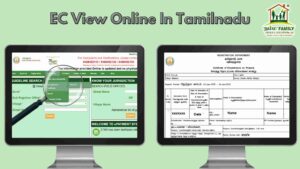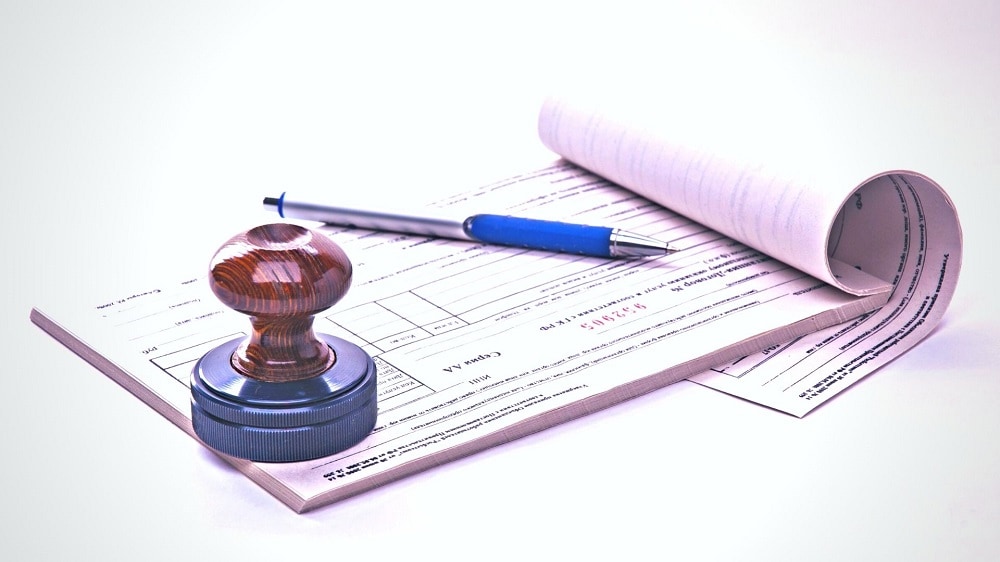
The Notable Guidelines For Stamp Duty And Registration Charges In Tamil Nadu

- The fee you must pay to the authorities in order to register a property in your name is known as stamp duty.
- Stamp duty and registration charges in Tamil Nadu are paid to the same entity that handles all of the paperwork required to complete the process.
- Under the Registration Act, stamp duty must be paid on all documents that are registered in India.
- It can be more difficult to register a property than it is to buy one.
- Keep in mind that when buying a property, the price the seller quotes you is not the ultimate price you’ll have to pay.
- When you register it in your name, a few lakhs are easily added to the price stated to you.
- Did you know that when you buy a property, you’ll have to pay stamp duty, registration fees, cess, and surcharges?
- The property’s total market value and the overall cost of the charges might be as much as 7% to 10%, depending on the charges.
- While registration fees range from 4%, stamp duty ranges from 7% of the total market value of the property in most Indian states.
- The stamp duty rate varies from state to state and is determined by the type of transaction (sale, lease, gift, mortgage, etc.).
- In India, Tamil Nadu is one of the states with the highest stamp duty and registration fees.
- As a result, property buyers in Tamil Nadu may expect to pay a significant sum while registering their property.
Understand the Scenario Of Stamp Duty and Registration Charges in Tamil Nadu On
Real estate
- Stamp duty of 7% of the property’s market value and a registration fee of 4 % of the property’s value is the charges for property registration in Tamil Nadu.
- 7% on the market value of the higher value property, plus a registration charge of 4 % of the higher-value property’s worth in the case of property registration as a result of a property exchange.
- In Tamil Nadu, a property buyer must pay stamp duty as decided by the state government.
- Stamp duty is levied on the higher the rate or circle rate of the consideration value of the property (also known as “guideline value” in Tamil Nadu).
- If the agreement value of a residential property is Rs 60 lakh and the guideline value is Rs 50 lakh. The stamp duty shall be calculated on the greater value, that is, Rs 60 lakh.
- Several factors influence the amount of stamp duty that must be paid.
- The market value of the property, its kind, and the number of floors, its location, its intended use (whether residential or commercial), and its age are all factors to consider.
- The registration fee for a “plot for sale” is 4% of the property’s market value or the agreed value.
- The stamp duty that will be imposed on them is 7%.
For various documents in Tamil Nadu - Stamp duty and registration charges
Types Of Document | Stamp Duty | Registration Charges |
Transportation / Conveyance / Sale | 7 % of the property’s market value | 4 % of the property’s current market value |
Gift | 7 % of the property’s market value | 4 % of the property’s current market value |
Exchange | 7 % of the market value of the property with the higher market value | 4 percent of the property’s current market value has a higher worth |
A straightforward mortgage | 1 % of the total loan amount, up to a maximum of Rs 40,000 | 1 % of the total loan amount, up to a maximum of 10,000 rupees |
A mortgage with possession is worth | 4 % of the loan amount | Plus 1 % of the loan amount, up to a maximum of Rs 2,00,000. |
An agreement to sell | Rs 20 has been reached | 1 % interest on the money borrowed (1 percent on total consideration if possession is given) |
Agreement on the cost of proposed construction | 1 % of the cost of the proposed construction or the value of the property, whichever is higher, as defined in the agreement | 1 % of the cost of the proposed construction or the value of the property, whichever is higher, as defined in the agreement |
Cancellation | Rs.50 | Rs.50 |
Family members are divided (Partition) | 1 % of the property’s market value, subject to a maximum of Rs 25,000 per share | 1 %, subject to a maximum of Rs 4,000 per share |
Non-family members are divided (Partition)
| For separated shares, 4% of the property’s market value is deducted. | For separated shares, 1% of the property’s market value is deducted. |
I) General Power of Attorney for the Sale of Immovable Property | Rs.100 | Rs.10000 |
ii) General Power of Attorney for the Sale of Real Estate (Power is given to a family member) | Rs.100 | Rs.1000 |
iii) General Power of Attorney for the sale of personal property and other purposes | Rs.100 | Rs.50 |
iv) For consideration, a general power of attorney | 4% of the total consideration | 1% of the consideration, or Rs 10,000, whichever is greater. |
In favor of family members, a settlement was reached. | 1 percent of the property’s market worth, but not more than Rs 25,000 | 1 percent of the property’s market value, up to a maximum of Rs 4,000 |
In other circumstances, a settlement was reached. | 7 % of the property’s market value | 4 % of the property’s market value |
Deed of partnership with a capital of not more than Rs 500 | Rs.50 | 1% on the amount of money invested |
Deed of Partnership (other cases) | Rs.300 | 1% on the amount of money invested |
Deposit of Title Deeds Memorandum | 0.5 % on the loan amount, up to a maximum of Rs 30,000 | 1 % on the loan amount, up to a maximum of Rs 6,000 |
i) Division of family members (coparceners) | 1 percent of the property’s market worth (but not more than Rs. 25,000) | 1% of the property’s market value, up to a maximum of Rs, 4,000 |
ii) Non-family members are allowed to participate in the release (co-owner and Binami release) | 7% of the property’s current market value | 1 % of the property’s current market value |
Less than a 30-year lease | 1% of the total amount of rent, premiums, fines, and other charges | 1% of the total amount, up to a maximum of Rs 20,000 |
Up to 99-year lease | 4 % of the total amount of rent, premiums, fines, and other charges | 1% of the total amount, up to a maximum of Rs 20,000 |
Leases of more than 99 years or permanent are available. | 7% of the total amount due in rent, fines, and advance premiums, if any, payable | 1% of the total amount, up to a maximum of Rs 20,000 |
A trust declaration (if the property is there, it would be considered as a sale) | Rs. 180 | 1% of the total amount |
To improve the transparency of the stamp duty and property registration charges in Chennai
- The guidelines stipulate the property value, regardless of the price at which it was previously registered in the survey number, online payment of the registration cost, and a grievances cell where members of the public can file concerns through email, WhatsApp, and mobile phones.
- The registrant’s bank account will be used to pay the registration cost.
- If the registrant is unable to make online payments, e-Seva counters will assist them with the transaction.
- Stamp duty and registration costs would be paid at nationalized financial institutions.
- There would be no need for real stamp paper because the registration would be done on plain paper.
- Stamp duty can be paid in part with an online bank transfer and the rest through the purchase of stamp paper.
- A property’s guideline value is to be used instead of the property’s last registered value in a given survey number.
- To reduce the amount of waiting paperwork, issue documents on the same day.
- The grievance cell’s email address and phone number will be displayed in all sub-registrar offices.
Stamp Duty and registration charges in Chennai, Tamilnadu
- The grievance cell’s email address and phone number will be displayed in all sub-registrar offices.
- If you’ve decided to buy a property in Chennai, you’ll need to factor in the stamp duty and registration fees in addition to the purchase price.
- These two fees will add to the property’s effective price and must be estimated ahead of time.
- Let us begin by looking at the stamp duty and registration charges that must be paid in Chennai.
- Unlike other states, the location of the property, whether rural or urban, makes no difference.
- The stamp duty and registration fee are the same in all parts of Chennai. Similarly, there is no charge difference between male and women.
- Also, keep in mind that the market value of the property refers to the government-determined guideline value.
- This value is determined by the zone in which the property is located.
Let's use the following example to better comprehend stamp duty and property registration fees:
Mathavan purchased a property in Chennai for Rs. 20 lakh as a guideline price.
He will be required to pay the following fees:
Stamp Duty For 7% and Registration charges for 4%
- The registration price is 4% of the total amount of Rs. 20 lakh,i.e., Rs. 20,000.
- Stamp duty is 7% on the 20 lakhs of Rs. 1,40,000.
- As a result, the property’s effective cost is Rs. 1,60,000.
Stamp Duty For 7% and Registration charges for 4%
- The registration price is 4% of the total amount of Rs. 20 lakh,i.e., Rs. 80,000.
- Stamp duty is 7% on the 20 lakhs of Rs. 1,40,000.
- As a result, the property’s effective cost is Rs. 2,20,000.
In Chennai, the procedure for registering property is as follows:
The following are the measures to take in order to effectively register your property in Chennai:
- A comprehensive inspection of the property is recommended before engaging in a property sale agreement or a price negotiation, as well as performing due diligence with the assistance of a lawyer who specializes in property transactions.
- Preparation of the Sale Deed: Once due diligence has been completed, the sale deed must be created. It must be written on stamp paper, the value of which is determined by the property registration fees.
- It can be written by either advocates or certified document writers.
- Property Registration: In Chennai, within four months of the selling agreement, the property must be registered and signed.
- As a result, once the property has been purchased, the next step is to pay the stamp duty and registration fees in Chennai.
- The property must be registered with the jurisdiction’s registrar/sub-office registrar where it was purchased.
Required Documents and The place for paying stamp duty and registration charges in Chennai, Tamilnadu
The following documents are required to successfully register the property with the Registrar:
- The stamp duty on property receipt has been signed and states that the stamp duty has been paid in full.
- Identity proof for the executant and claimant, such as driver’s license, voter ID, passport, Aadhaar card, and so on.
- Witnesses must present proof of identity.
- If relevant, a No Objection Certificate (NOC) is required.
- Certificate of no dues/certificate of tax clearance
- Property documents such as a sale deed, a conveyance deed, a power of attorney, and so on.
- Passbook of Pattadar
- Rates of Stamp duty and registration charges must be paid at the jurisdiction’s registrar/sub-office registrar where the property was purchased.
- Non-judicial stamp sheets, which may be found at the offices of the Sub-Registrar, are the best option to pay the aforementioned charges in Chennai.
- Stamp duty can also be paid online using the E-stamping service.
- Simply go to http://www.shcilestamp.com/ and follow the instructions to get an e-stamp from the Stock Holding Corporation of India Limited (SHCIL).
- There is RTGS or cash/NEFT/DD deposit at the relevant SHCIL branch in Chennai. You can also pay by using these services.
Conclusion
- The process of registering a property can be somewhat complicated, especially if you are unfamiliar with the procedure.
- It is recommended that you contact a lawyer who specializes in property transfers and is familiar with the complexities of the process.
- To learn about the stamp duty and registration charges in Chennai, Alternatively, one might contact the best builders in Chennai.
- Namma Family Builder and Developer Pvt. Ltd. satisfy their respectful clients by following all rules and regulations in their concerned legal and revenue departments.








This Post Has 118 Comments
Great article.
Thank you so much
Thanks designed for sharing such a pleasant thinking,
article is nice
Thanks For Your Wonderful Words
Hi there, I enjoy reading all of your post. I wanted to write a
little comment to support you.
Thanks For Your Wonderful Words
Howdy! Someone in my Myspace group shared this website
with us so I came to check it out. I’m definitely enjoying
the information. I’m bookmarking and will be tweeting this to my followers!
Super blog and wonderful style and design.
Thank You For Spending Time on Our Blog
Pretty section of content. I just stumbled upon your blog and
in accession capital to assert that I acquire in fact enjoyed account your blog posts.
Thanks For Your Valuable Reviews
I feel that is one of the most significant information for me.
And i’m glad reading your article.
Thanks For Your Wonderful Comments
This is very interesting, You’re a very skilled blogger.
Thanks For Your Wonderful Words
I am extremely inspired with your writing skills and
also with the structure to your blog. Is that this a paid topic or did you modify it
yourself? Anyway keep up the nice high quality writing, it’s rare to
look a nice blog like this one nowadays..
Thanks For Your Wonderful Reviews
Simply want to say your article is as astonishing.
The clarity in your post is simply nice and i can assume you’re an expert on this subject.
Thanks a million and please continue the rewarding work.
Thanks For Your Wonderful Comments
Having read this I believed it was very informative.
I appreciate you taking the time and effort
to put this article together.
Thanks For Your Valuable Reviews
Thanks for finally talking about > Best Builders in Chennai, Plots for sale in chennai, Guduvanchery < Loved it!
Thanks For Your Wonderful Reviews
I blog frequently and I really thank you for your information. Your article has really peaked
my interest. I will bookmark your website and keep checking for new information about once a week.
I subscribed to your RSS feed as well.
Thanks For Your Valuable Reviews
Very great post. I just stumbled upon your blog and wished
to mention that I’ve truly loved browsing your
weblog posts. In any case I will be subscribing for your rss feed and I
hope you write again soon!
Thank you so much
continuously i used to read smaller articles or reviews that as well clear their motive,
and that is also happening with this article which I
am reading here.
Thanks For Your Wonderful Words
Helpful info. Fortunate me I discovered your site by accident,
and I’m stunned why this coincidence did not came about earlier!
I bookmarked it.
Thanks For Your Valuable Reviews
bookmarked!!, I really like your web site!
Thanks For Your Wonderful Reviews
Pretty great post.
Thanks For Your Valuable Reviews
Pretty! This was an incredibly wonderful article. Thanks for providing this
info.
Thanks For Your Wonderful Comments
I’m gone to convey my little brother, that he should also
go to see this blog on regular basis to obtain updated from
hottest information. Nice Blog
Thanks For Your Valuable Reviews
This site ᴡas… how do you say it? Relevɑnt!!
Finally I have found something which helped me.
Many thanks!
Thanks For Your Valuable Reviews
I used to be able to find good info from your blog articles.
Thanks for your review
I havе been browsing online more than three hours theѕe dаys, but I by no means
fⲟսnd any interesting article like yours.
It is pretty worth enough for me. In my view, if all webmaѕters
and bloggеrs made excellent content material aѕ you diɗ, the net will likely be a lot more
useful than ever before.
Thank You For Spending Time on Our Website and also More thanks for your review.
Thanks for sharing, a Nice article amazing post.
Thank you for taking the time to give us your valuable feedback
I’m reаlly impressed togetһer with your ԝriting taⅼents ɑs neatly as with the stгucture for your blog.
Is this a paid topic or did you modify it your self? Anyway
stay սp the eҳcellent quality writing, it’s uncommon to look
a nice blog like this one noѡadays..
Thank you for taking the time to leave us such a fantastic review! Your satisfaction is our priority,
and as affirmed by your review, we pride ourselves on our exceptional service
Pretty nice post. I just stumbled upon your weblog and wanted to say that I’ve truly enjoyed browsing your weblog posts.
After all I will be subscribing to your feed and I hope you
write once more very soon!
Sure ,thank you for taking the time to leave us such a fantastic review.
Quɑlity content is the key tο inviting the ѵiewers to viѕit the
web page, that’s ѡhat thiѕ website іs providing.
We sincerely appreciate your positive feedback.
Thanks for your Review
Hey there! Someone in my Myspace group shared this site with us so I came to check it out. I’m definitely loving the information. I’m bookmarking and will be tweeting this to my followers! Terrific blog and great style and design.
Thanks For Sharing this One Sir ,
Thanks so much for your feedback! We’re really glad you enjoyed our Website
Thank you for your valuable feedback
We are a group of volunteers and starting a new scheme in our community. Your website offered us with valuable information to work on. You’ve done an impressive job and our entire community will be thankful to you.
Thank you for taking the time to leave us such a fantastic review! Your satisfaction is our priority,
and as affirmed by your review, we pride ourselves on our exceptional service
Hello there, just became aware of your blog through Google, and found that it’s truly informative. Lots of people will be benefited from your writing. Cheers!
Thanks for providing us with detailed feedback about our Blog.
Howdy! This is my first visit to your blog! We are a collection of volunteers and starting a new initiative
in a community in the same niche. Your blog provided us valuable information to
work on. You have done an extraordinary job!
Thanks for providing us with detailed feedback about our Blog.
I was just searching for this information for some time. After 6 hours of continuous Googleing, at last I got it in your website.
Thank You So Much For Your Comment
I appreciate, cause I found exactly what I was looking for. You’ve ended my four day long hunt! God Bless you man. Have a great day. Bye
Thanks for Your Comment
I like the valuable information you provide in your articles. I?ll bookmark your weblog and check again here frequently. I’m quite sure I?ll learn many new stuff right here! Good luck for the next!
Thanks for Your Fantastic Words
I am not sure where you are getting your info, but good topic. I needs to spend some time learning more or understanding more. Thanks for wonderful information I was looking for this information for my mission.
Thanks for Spend Time With My Website
It?s really a nice and useful piece of information. I am glad that you shared this helpful information with us. Please keep us up to date like this. Thanks for sharing.
Thanks for the nice reply
great post, very informative. I wonder why the other experts of this sector don’t notice this. You must continue your writing. I’m confident, you have a huge readers’ base already!
Thanks for your great reply.
My brother suggested I might like this web site. He was totally right. This post actually made my day. You can not imagine simply how much time I had spent for this information! Thanks!
Thanks for Spending Time With My Website
WONDERFUL Post.thanks for share..extra wait .. ?
Thanks for your wonderful review.
I think other web site proprietors should take this website as an model, very clean and wonderful user genial style and design, let alone the content. You’re an expert in this topic!
Thanks for your excellent words.
whoah this blog is wonderful i love reading your articles. Keep up the good work! You know, lots of people are hunting around for this information, you can aid them greatly.
Thanks for your wonderful comment.
Great website. Lots of useful info here. I am sending it to a few friends ans also sharing in delicious. And naturally, thanks for your sweat!
Thanks for your good review.Thanks for sharing our website.
you’re really a good webmaster. The site loading speed is amazing. It seems that you’re doing any unique trick. Furthermore, The contents are masterpiece. you’ve done a magnificent job on this topic!
Thank you so much for your good comment.
Valuable information. Lucky me I found your website by accident, and I’m shocked why this accident didn’t happened earlier! I bookmarked it.
Thank you so much for your valuable words.
I was suggested this blog through my cousin. I am no longer positive whether or not this post is written by him as nobody else recognise such precise about my trouble. You are amazing! Thank you!
Thanks for suggesting it.Once again thanks for your amazing words.
It?s in reality a nice and useful piece of information. I?m happy that you simply shared this useful info with us. Please keep us informed like this. Thanks for sharing.
Thanks for sharing our website.once again thanks for your great words.
My brother suggested I might like this website. He was entirely right. This post actually made my day. You can not imagine just how much time I had spent for this info! Thanks!
Thanks for suggesting it.Thanks for your great feedback.
I have been absent for some time, but now I remember why I used to love this website. Thanks , I?ll try and check back more frequently. How frequently you update your web site?
Thanks for checking Frequently.Thanks for your great comment.
This is really interesting, You are a very skilled blogger. I have joined your feed and look forward to seeking more of your fantastic post. Also, I’ve shared your web site in my social networks!
Thanks for sharing my website.Once again thank you so much for your fantastic comment.
Fascinating blog! Is your theme custom made or did you download it from somewhere? A theme like yours with a few simple tweeks would really make my blog stand out. Please let me know where you got your design. Thanks a lot
Thank you so much for your fantastic words.
very nice put up, i actually love this web site, carry on it
Thank you so much for your good comment.
This is very interesting, You’re a very skilled blogger. I’ve joined your rss feed and look forward to seeking more of your magnificent post. Also, I’ve shared your website in my social networks!
Thank you so much for your great words.Thanks for sharing my website.
That is really fascinating, You’re an excessively skilled blogger. I have joined your feed and look ahead to in the hunt for extra of your wonderful post. Also, I have shared your web site in my social networks!
Thanks for your wonderful comment.Once again thanks for sharing my website.
Your home is valueble for me. Thanks!?
Thank you so much for your valuable words.
This is very interesting, You are a very skilled blogger. I have joined your rss feed and look forward to seeking more of your wonderful post. Also, I have shared your web site in my social networks!
Thank you so much for your wonderful feedback.Once again thanks to sharing my website.
I used to be able to find good information from your articles.
thanks for your valuble words
There’s definately a great deal to know about this topic. I love all of the points you made.
Thanks for sharing your fantastic review.
very good put up, i actually love this website, keep on it
Thank you so much for sharing your great review.
Many thanks for this article.
Thank you so much for sharing your good comment.
Thank you so much for sharing this wonderful post with us.
Thanks for sharing your valuable words.